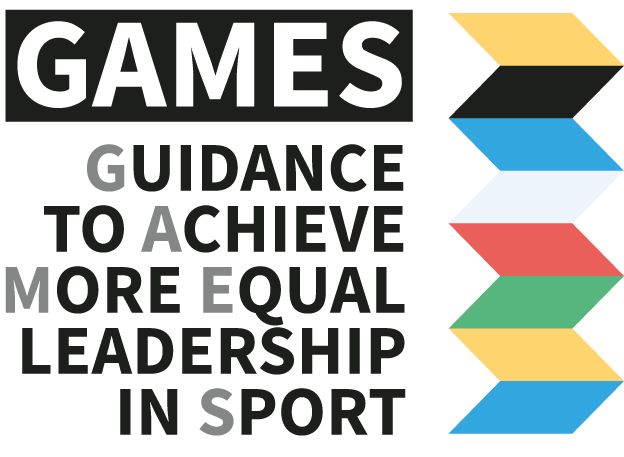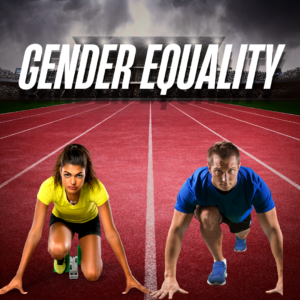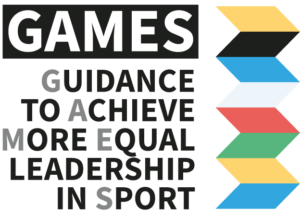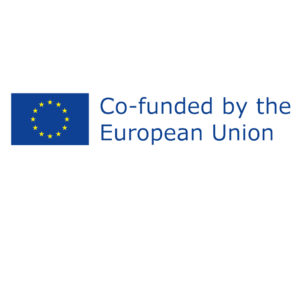Gender Equality in the EU Sport Policies.
Gender equality represents one of the core democratic principles of the European Union, and is at the forefront of the von der Leyen European Commission (2021-2024)’s priorities. This article aims at providing an overview of the EU institutions’ vision for gender equality in general, and within the sports sector, specifically. This state of the art is followed by an analysis of how the GAMES project echoes the International Olympic Committee’s actions and fits in the EU’s gender equality and sport policy.
The European Commission
The von der Leyen Commission aims at promoting women in decision-making by leading by example. As a matter of fact, the Commission aimed at reinforcing its efforts to boost female representation in decision-making positions in Europe. In March 2020, the European Commission adopted its Gender Equality Strategy for 2020-2025. The text explicitly mentions that the framework will serve to “promote women’s and girls’ participation in sport and physical activity and gender balance in leadership positions within sport organisations.” Particularly, through the Gender Equality Strategy, the Commission called on the European Parliament and the Council of the EU to:
• Adopt the proposal for a Directive on improving the gender balance on corporate boards.
• Adopt measures to improve gender balance at all levels of their management and in leadership positions.
The Commission also urged Member States to transpose and implement the Directive once adopted as well as develop and implement strategies to augment the number of women in decision-making positions in politics and policy-making.
The European Parliament
In November 2021, the European Parliament adopted a report on EU Sport Policy. The report particularly highlights the underrepresentation of women in sport governance and calls for sports governing bodies to put into place measures to tackle the lack of women in decision-making positions. The report also urges the Commission and Member States to implicate all relevant stakeholders in making sure that sports legislation and policy promote gender equality. Though not legally binding, the adoption of the report demonstrates the Parliament’s interest to address the matter of gender equality in EU Sport policy.
In March 2022, the European Parliament’s High Level Group on Gender Equality in Sport published its report “Towards more gender equality in sport”. As a result of collaborative work between representatives of European institutions and sport organisations, among which the EOC EU Office, the report formulates recommendations across six key thematic areas, including leadership. In this regard, the report recommends to:
• Commit to measures to ensure gender equality in leadership
• Raise awareness of the value of diverse gender representation on executive committees
• Set a 50% representation quota for women in all decision-making bodies and fix term limits,
• Set up programmes to raise awareness of biases keeping women out of leadership roles
• Work with groups specialising in evaluating and implementing leadership and gender policy.
In November 2022, the European Parliament approved a landmark Directive on gender balance among directors of listed companies – also known as the ‘Women on Boards’ directive – to enhance gender equality on corporate boards by boosting women’s presence in leadership positions. Though not relevant for the sport sector at this stage, the Directive sets a cornerstone for the EU’s gender equality legislative arsenal.
The Council of the EU
The EU Work Plan for Sport 2021-2024 specifically mentions gender equality in sport as one of its main priorities. It noticeably underlines the specific objective of “increasing the share of women, especially among coaches and leadership positions in sports organisations and sports clubs”, notably foreseeing the measures to be implemented in the years 2022-2023 with potential Council Conclusions on the matter under the Spanish Presidency. Resultantly, the Work Plan aims at exchanging best practices, building knowledge surrounding gender equality in sport and following up to two framework documents. First, the Council Conclusions of 2014 on Gender Equality in Sport, which namely acknowledged the low number of women in leadership positions in sport governing bodies and recommended Member States to take measures to further promote the involvement of women in decision-making processes, and second, the Recommendations of the Expert Group on Good Governance on Gender Equality in sport.
The upcoming Spanish Presidency of the Council of the EU (July-December 2023) has announced gender equality and inclusion in sport as one of its core priorities, hence being the first Presidency country to set the topic of gender equality in sport high on its agenda. Events to look forward to are the Directors’ meeting on gender equality and safe environment in sport as well as the Congress on Gender Equality. The Spanish Presidency is also expected to start the discussions on the next Work Plan for Sport, setting the ground for EU sport policy for the period 2025-2028. It is also noteworthy to mention that the preceding Council presidency, which will be chaired by Sweden, announced its intent to work on the EU Work Plan for Sport 2021–2024 as part of its programme – although the detailed agenda remains undisclosed.




